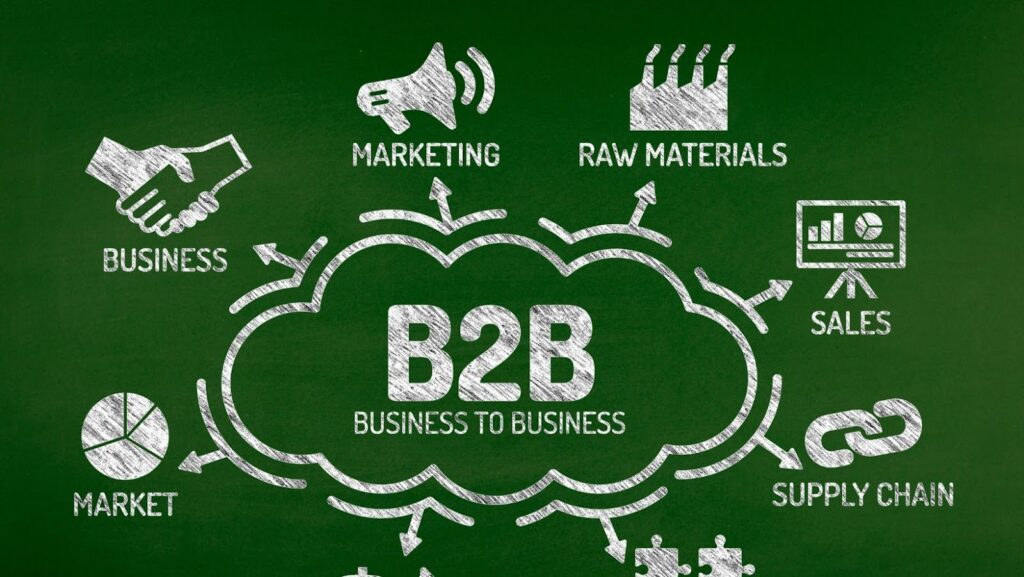
The power of influencer collaborations has become increasingly significant, especially in the B2B (business-to-business) landscape. As businesses seek to connect with their target audiences more authentically and engagingly, leveraging the influence of industry experts, thought leaders, and respected professionals has emerged as a highly effective strategy.
B2B influencer and brand collaborations involve partnerships between businesses and individuals with credibility, expertise, and a strong following within a specific industry or niche. These collaborations can take various forms, from content creation and co-branding to event sponsorships and strategic alliances.
Types of B2B Influencer and Brand Collaborations
In B2B marketing, influencer and brand collaborations have evolved into a sophisticated strategy that can effectively bridge the gap between professional networks, enhance brand credibility, and drive business growth.
Unlike B2C influencer marketing, which often focuses on lifestyle and consumer products, B2B collaborations emphasize thought leadership, industry expertise, and long-term value creation. Here, we explore the most successful B2B influencer and brand collaborations, shedding light on how they work and why they are effective.
Thought Leadership Collaborations
One of the most impactful forms of B2B influencer collaborations is thought leadership. Companies partner with industry experts, analysts, and influential figures to co-create content that positions both parties as leaders in their field. This can include white papers, research reports, webinars, and keynote presentations. By aligning with respected thought leaders, brands can enhance their credibility and gain the trust of their target audience.
For instance, IBM frequently collaborates with industry analysts like Forrester Research to produce thought leadership content such as white papers and research reports. They created a comprehensive report on the state of cloud computing. This collaboration leveraged Forrester’s analytical expertise and IBM’s technological prowess to offer deep insights into industry trends, positioning IBM as a leader in cloud solutions.
IBM reported a significant increase in inquiries and leads from enterprise clients interested in their cloud services, attributing a 30% uptick in cloud service contracts to the enhanced credibility gained from the report.
Content Co-Creation
Content co-creation is another powerful collaboration strategy in B2B marketing. This involves working with influencers to develop valuable content that addresses the pain points and interests of the target audience.
Content formats include blog posts, articles, video series, podcasts, and case studies. The key to success in content co-creation is ensuring that the content is not overly promotional but offers genuine insights and solutions. For example, a SaaS company might partner with a digital marketing guru to create a video series leveraging software tools to improve marketing ROI. This type of collaboration provides valuable content to the audience and amplifies the reach and engagement through the influencer’s established network.
One notable example of a successful content co-creation collaboration is the one between HubSpot and Neil Patel. HubSpot, a leading marketing and sales platform, has collaborated on various content pieces with Neil Patel, a prominent digital marketing influencer. Together, they produced blog posts, webinars, and e-books focusing on inbound marketing strategies. This partnership allowed HubSpot to tap into Neil Patel’s extensive audience and credibility, providing valuable insights on marketing best practices to their shared audiences.
The content generated through this collaboration saw high engagement rates, with blog posts receiving thousands of shares and the webinars attracting many attendees. HubSpot reported a 25% increase in new user sign-ups during the campaign, with a notable spike in traffic from Neil Patel’s audience. Additionally, the e-books had a conversion rate of 15%, significantly higher compared to their average content campaigns.
Event Partnerships
Virtual and physical events provide an excellent platform for B2B influencer collaborations. Brands can invite influencers to speak at conferences, participate in panel discussions, or host workshops. These events offer a dual benefit: they provide valuable exposure for the influencers while enabling the brand to leverage the influencer’s authority to attract and engage attendees.
A well-known example is the collaboration between Salesforce and various industry influencers during their annual Dreamforce conference. Influencers participate in sessions, share their expertise, and help amplify the event’s reach through their channels, creating a win-win situation.

Dreamforce saw record-breaking attendance, with over 170,000 registered participants and millions more joining online. The involvement of high-profile influencers significantly boosted the event’s publicity, resulting in extensive media coverage. Post-event surveys indicated a 40% increase in brand favorability among attendees, and Salesforce experienced a 35% increase in new business opportunities attributed to the event.
Product Launches and Analysis
B2B companies can collaborate with influencers to generate buzz and credibility when launching a new product or service. Influencers can provide unbiased reviews, testimonials, and demonstrations that resonate with their audience. This type of collaboration is particularly effective when dealing with complex products that require detailed explanations and endorsements from trusted experts.
For instance, Microsoft collaborated with IDC to launch Azure, with IDC providing detailed analysis and reviews. IDC’s endorsement and comprehensive reviews helped build trust in Microsoft’s Azure platform. The launch was successful, with Azure securing a substantial market share quickly. Microsoft reported a 50% increase in enterprise customer acquisition within the first year of the launch, attributing much of this success to the credibility and insights provided by IDC.
Social Media Takeovers
Social media takeovers involve giving influencers control over a brand’s social media channels for a specific period. This strategy allows the influencer to share their insights, experiences, and expertise directly with the brand’s audience, often leading to increased engagement and follower growth. In B2B, social media takeovers can be particularly effective during industry events, product launches, or special campaigns.
Slotswise, an iGaming company, collaborated with gaming influencers to promote the £5 casino offers across social media channels, including Facebook and Instagram. The influencers created videos or live-streamed their experiences using the £5 casino offers, showcasing gameplay, wins, and the overall user experience.
The collaboration resulted in a significant increase in traffic to the Slotswise website. The targeted approach ensured that the audience reached was genuinely interested in online gaming and gambling offers. Slotswise reported a 40% increase in website visits and a 25% increase in new sign-ups during the campaign.
Advisory Roles and Endorsements
Another successful strategy involves bringing influencers into advisory roles or securing their endorsements. Influencers can serve on advisory boards, providing strategic insights and lending their credibility to the brand. Their involvement can be highlighted in marketing materials, press releases, and industry events to underscore the brand’s commitment to innovation and excellence.
For example, Oracle has brought industry analyst Ray Wang on board as an advisor and endorser. Ray Wang, a founder of Constellation Research, lends his expertise and credibility to Oracle’s strategic initiatives.
Ray Wang’s involvement provided Oracle with valuable strategic insights and enhanced their market reputation. His endorsement was featured in key marketing campaigns, which saw a 25% increase in engagement compared to previous campaigns. Oracle also noted a 20% increase in analyst mentions and positive reviews in industry reports, contributing to a 10% growth in enterprise software sales.
Long-Term Partnerships
While short-term campaigns can be effective, long-term partnerships with influencers often yield more substantial results. Establishing ongoing relationships allows for deeper collaboration, continuous content creation, and a more authentic connection with the audience. These partnerships can evolve, adapting to changing market conditions and business needs.
Adobe is one of the companies that establishes long-term partnerships, one of which is the partnership with Joe Pulizzi.
Over the years, this partnership has created numerous high-quality content pieces that consistently engage Adobe’s audience. Adobe reported a 30% increase in content marketing ROI, with Joe Pulizzi’s involvement significantly boosting the credibility and reach of their content initiatives. The partnership also helped Adobe secure several industry awards for their content marketing efforts, further solidifying their leadership position.
How to Find the Right Influencers for Your B2B Brand
Identifying the right influencers to collaborate with is crucial for the success of your B2B influencer and brand partnership. Here are some tips to help you find the perfect fit:

- Start by clearly defining your target audience and the specific industry or niche you’re looking to reach. This will help you identify influencers with a strong following and engagement within your target market.
- Use tools and platforms like LinkedIn, Twitter, and industry publications to identify respected professionals, subject matter experts, and thought leaders within your industry.
- Assess the influencer’s level of expertise, industry reputation, and the relevance of their content and following to your brand and target audience.
- Look for influencers with a highly engaged following and a track record of producing authentic, valuable content that resonates with their audience.
- Ensure the influencer’s values, tone, and overall brand image align with your own to create a cohesive and authentic collaboration.
The landscape of B2B influencer and brand collaborations is diverse and dynamic, offering numerous pathways to enhance brand credibility, visibility, and growth. From thought leadership and content co-creation to event partnerships and social media takeovers, each type of collaboration brings distinct advantages that can be strategically leveraged to meet specific business goals. The real-world examples illustrate the tangible benefits that these collaborations can deliver, including increased engagement, higher conversion rates, and improved market positioning.
In conclusion, the success of B2B influencer and brand collaborations lies in their ability to create meaningful, value-driven connections between brands and their audiences. As the digital landscape continues to evolve, these collaborations will remain a crucial component of effective B2B marketing strategies, allowing companies to build trust, foster innovation, and drive sustainable growth.







